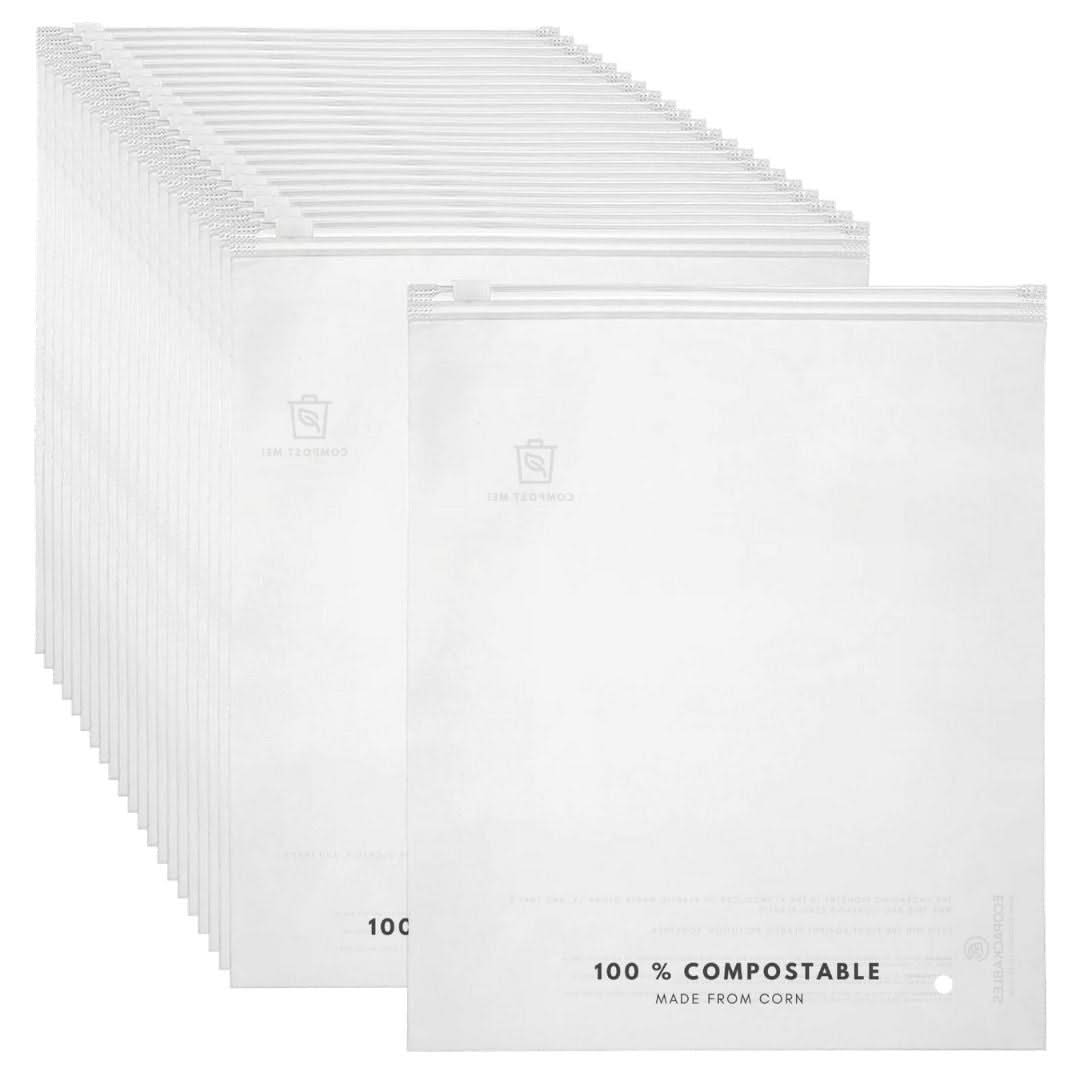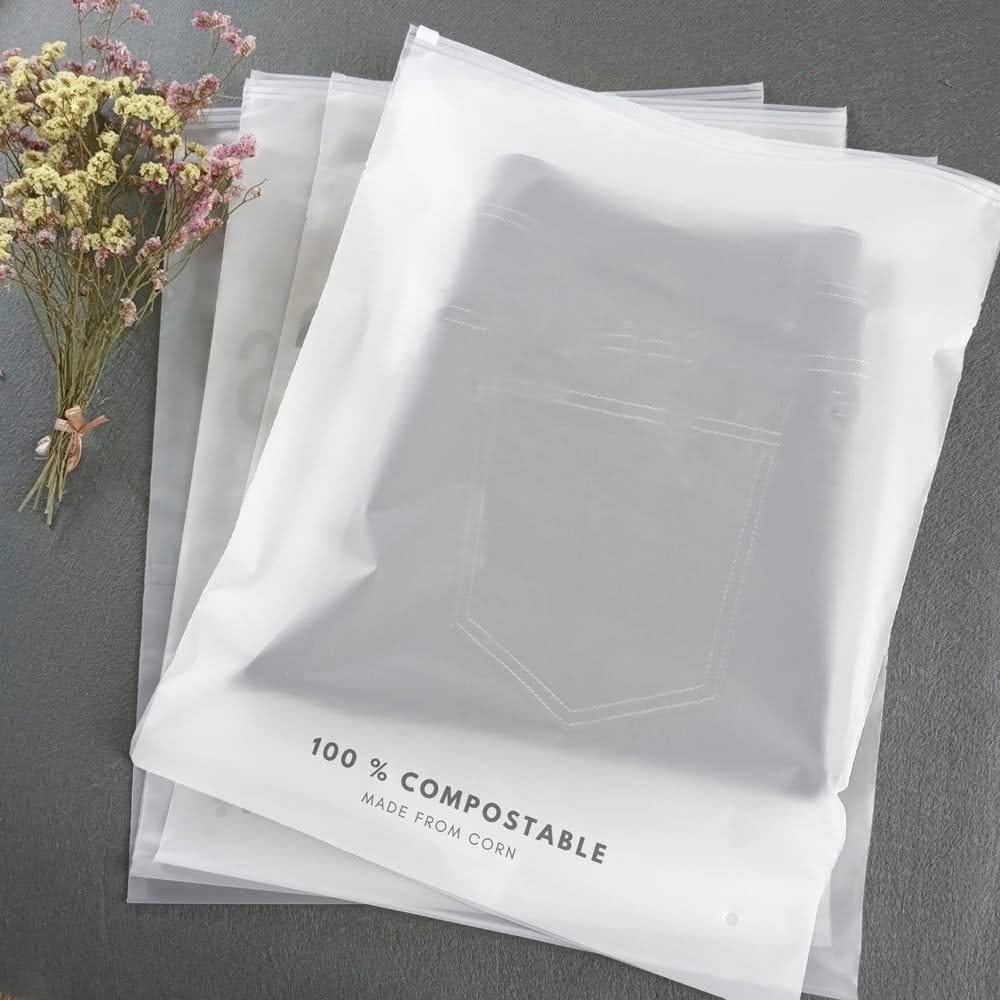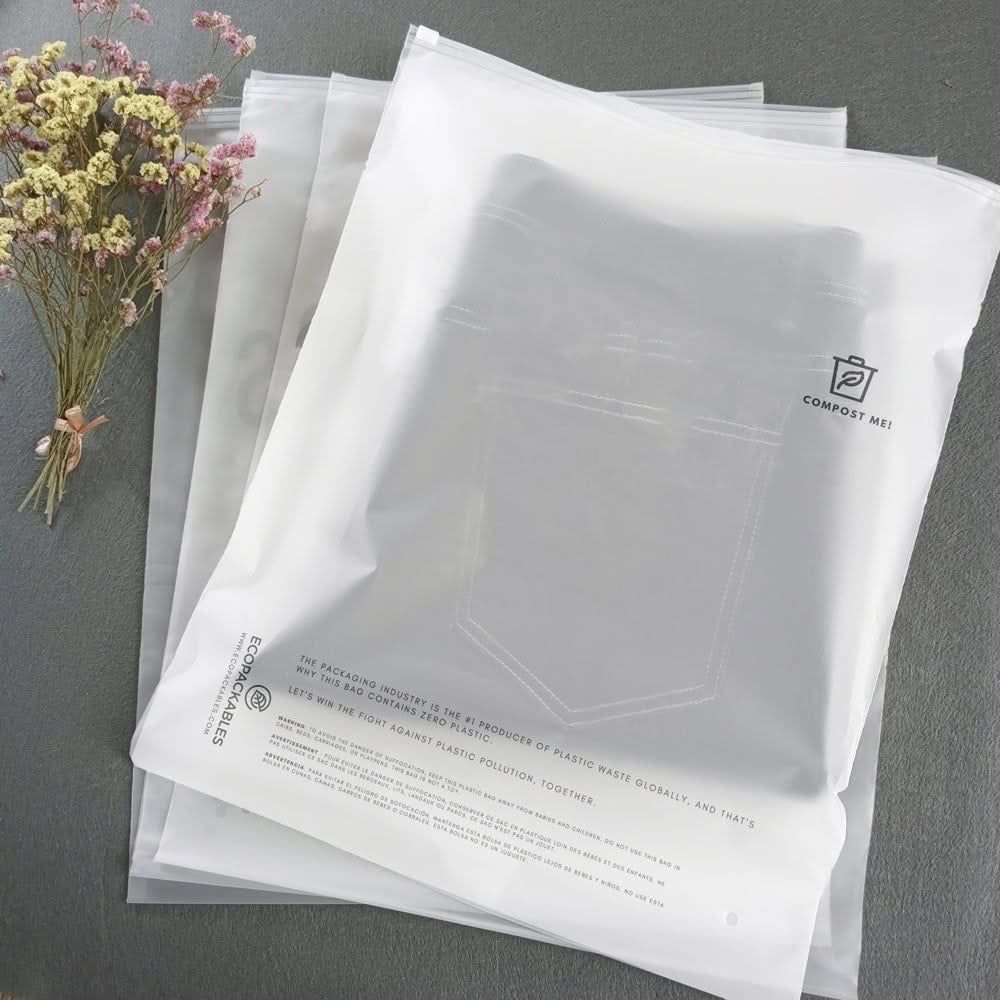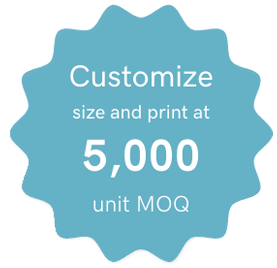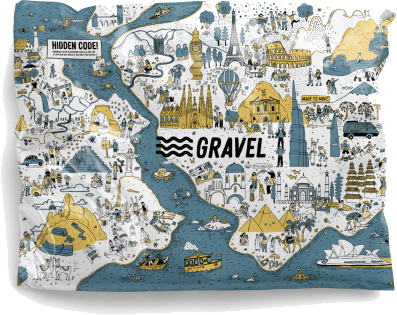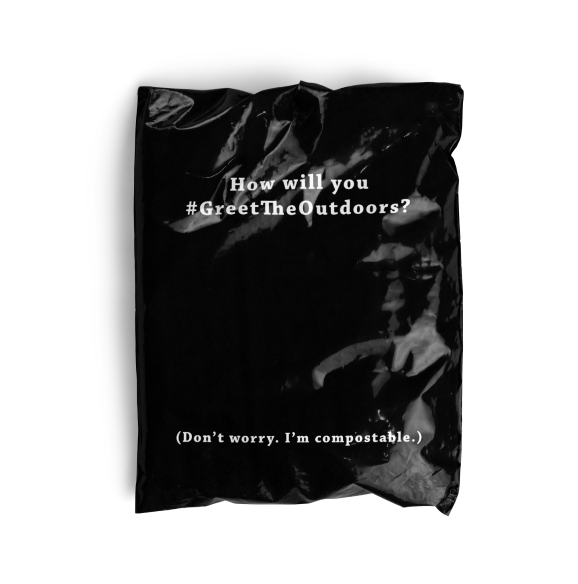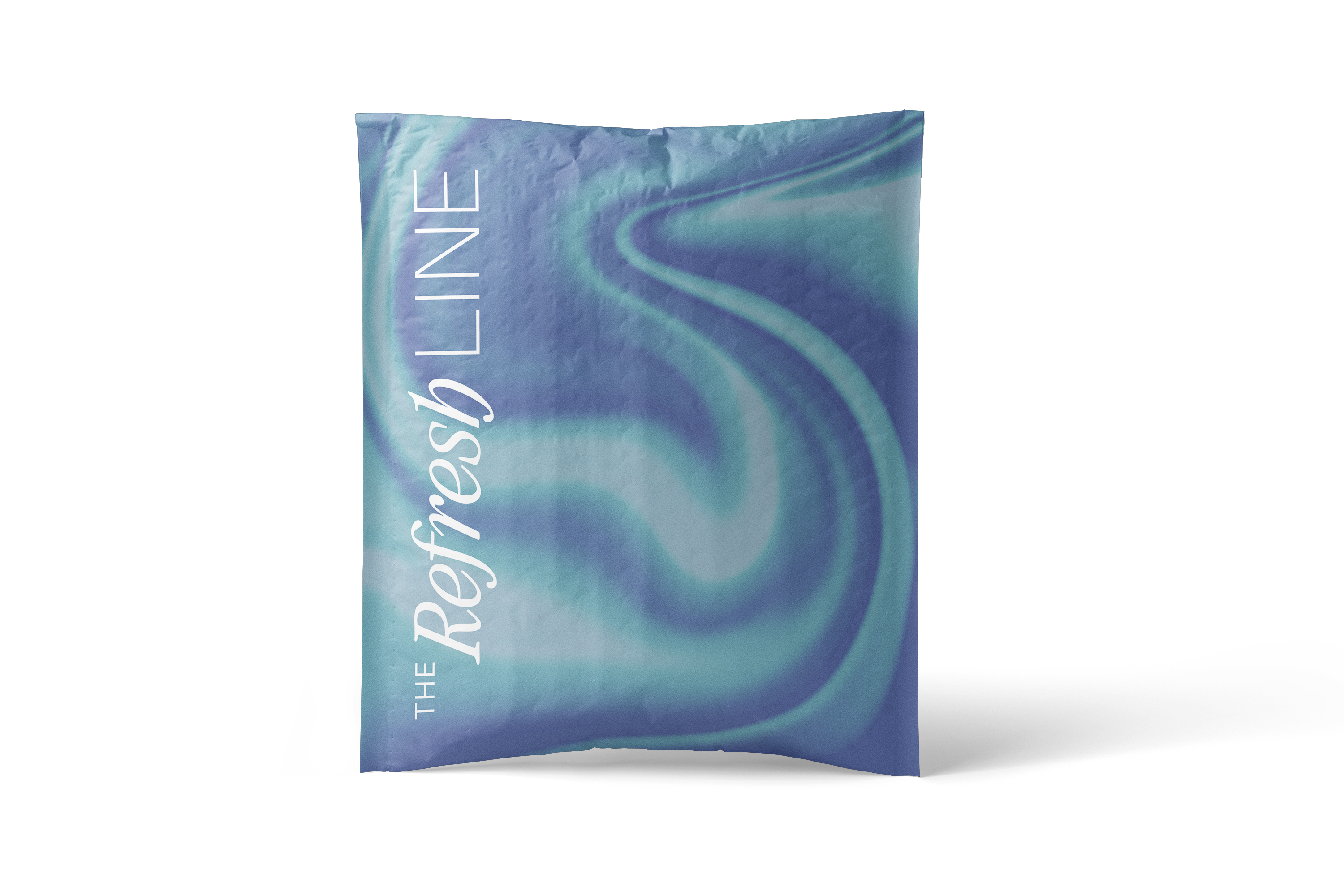Try out a sample from our sample packs!
Our 100% Compostable and Biodegradable Poly Bags offer an eco-friendly, durable solution certified for industrial composting. Made from organic materials, they provide reliable inner-packaging protection with zero plastic.
-
Stock Options (70 µm):
- 9 x 12" – Case Size: 1,000 Units
- 11 x 15" – Case Size: 700 Units
- 12 x 18" – Case Size: 600 Units
- 16 x 20" – Case Size: 400 Units
-
Certifications: TUV, ABA, and BPI
Try out a sample from our sample packs!
Our Custom Compostable Clothing Bags provide eco-friendly protection for apparel, travel items, and healthcare products. Fully compostable, including the zipper, they biodegrade in home and industrial composting settings.
- Customizable Size: 1.18x1.97" to 31.5x39.37"
- Print options: Two-sided print
- Thickness: (20-200μm)
- Closure options: zipper-pull tab, zip lock, non-toxic reclosable adhesive, permanent adhesive
- Other features: vent holes
- Certifications: TUV, ABA
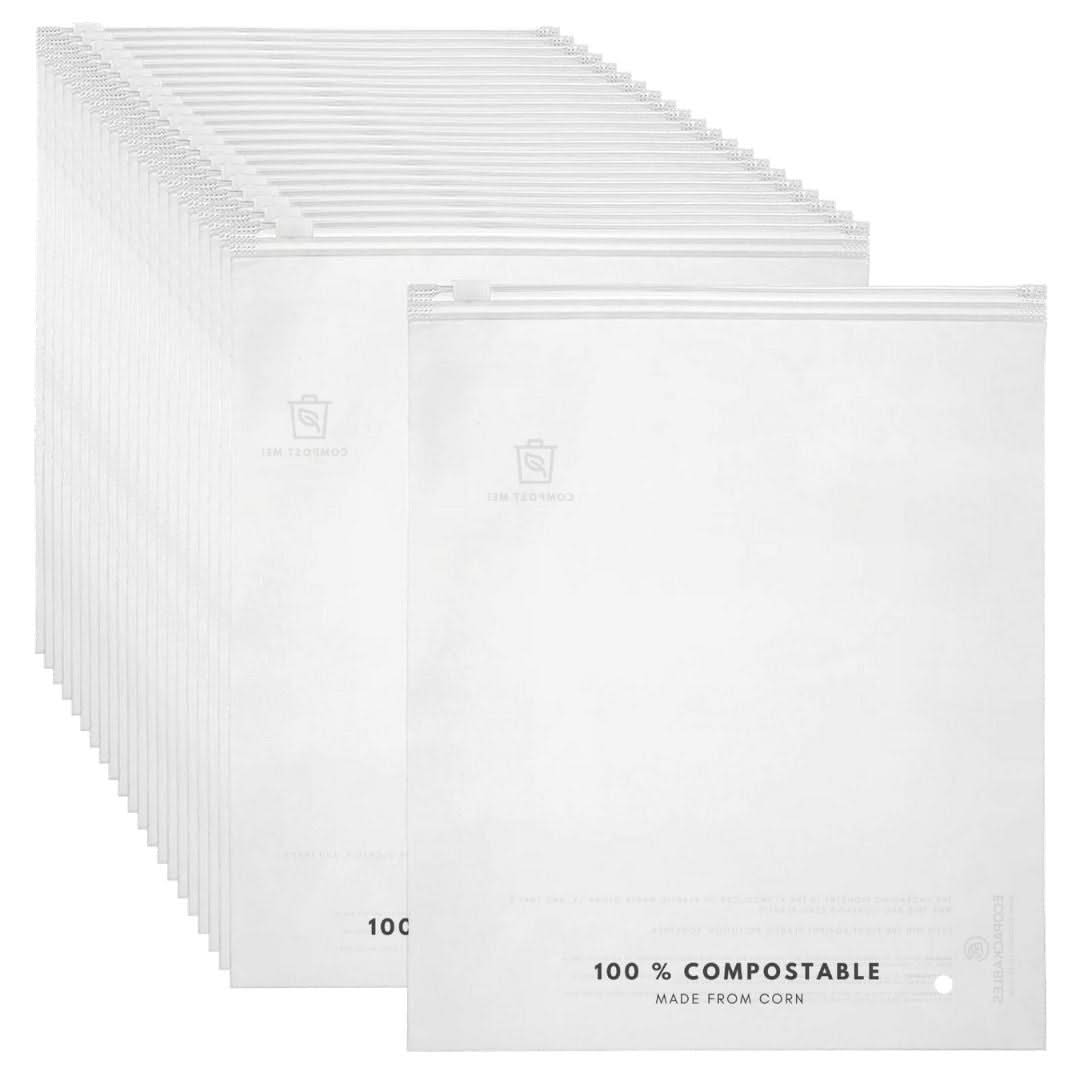
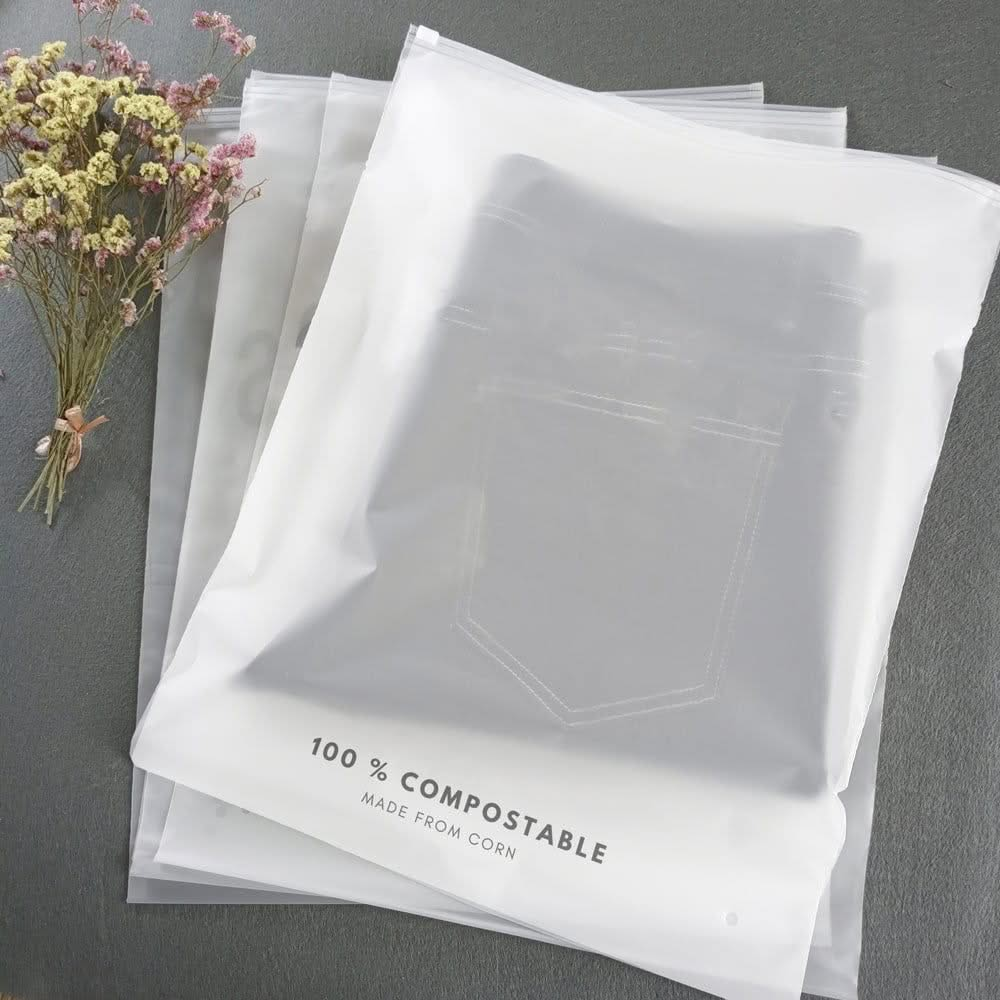
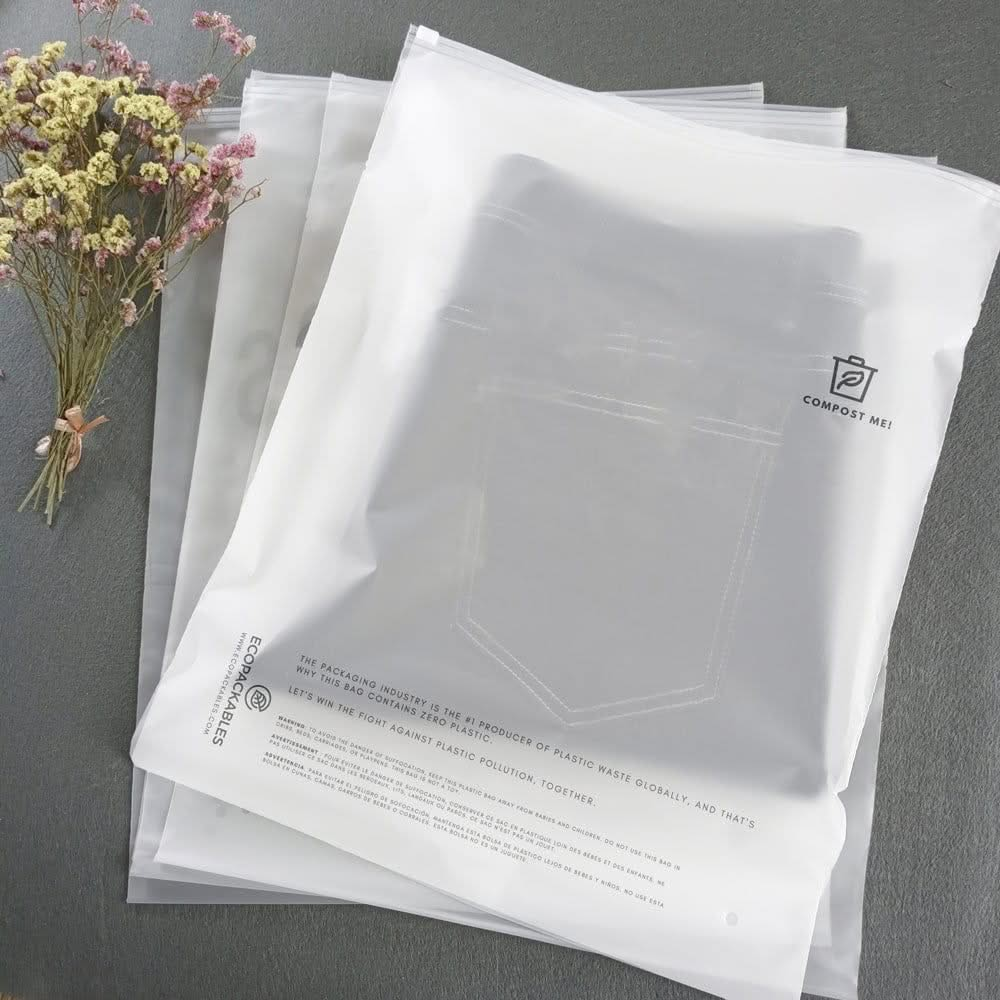
We Work With
Our 100% Compostable and Biodegradable Clothing Bags are designed to protect your products while protecting the planet. Made from EcoPackables D41 and D42 films, these bags provide durability, a premium translucent look, and a fully compostable end-of-life solution, free from traditional plastics and microplastics.
Perfect Packaging for:
- Apparel & Accessories
- Travel & Lifestyle Products
- Healthcare & Wellness Goods
- Subscription Boxes & eCommerce Orders
- Cosmetics & Personal Care
- Compostable and Biodegradable: Made from renewable materials such as cornstarch, cassava root, and PBAT (a bio-based polymer).
- Certified Sustainability: TUV, ABA, and BPI certified for industrial composting (within 90 days).
- Plastic-Free Appearance: Translucent finish offers a premium, eco-friendly look.
- Customizable: Available in various sizes and thicknesses (20–100 μm) with two-sided printing using eco-friendly water-based inks.
- Practical Design Options: Choose closures like zipper-pull tabs, zip locks, or non-toxic reclosable adhesive; vent holes available on request.
- Durable and Heat-Sealable: Reliable protection while maintaining compostable integrity.
EcoPackables D41 Film
D41 is a Translucent compostable film made from a proprietary blend of cornstarch and PBAT, a bio-based polymer. It is suitable for single-layer applications and can be customized in thickness from 20–100μm. Both sides are printable and heat-sealable.
LCA Context: Ideal for applications seeking a plastic-free visual appearance with compostable end-of-life, although it carries a moderate carbon footprint relative to recycled options.
- Adhesive options: single or double strip.
- Printed with eco-friendly water-based inks.
- Minimum custom order: 5,000 units.
- Daily production capacity: 35,000 units.
How to Get Custom Recycled Polymailers in 3 Simple Steps
Let customers speak for us
Sustainability & End-Of-Life
By choosing compostable packaging, your brand helps reduce plastic pollution and supports a circular, bio-based economy. A single order of 10,000 compostable bags can divert approximately 200 lbs of plastic from landfills and oceans

Made
Produced with renewable, bio-based materials like cornstarch and PBAT

Shipped
Delivered to your warehouse or customers

Reused
Decomposes in industrial composting within ~90 days

Recycled
Returned to the cycle through store drop-off programs
Frequently Asked Questions
Compostable clothing bags are eco-friendly packaging made from renewable, plant-based materials such as cornstarch, cassava root, and PBAT (a compostable bio-based polymer). Unlike traditional plastic bags, they are designed to safely decompose into natural elements like water, CO₂, and organic matter within industrial composting conditions, typically in around 90 days.
The bags are certified by all three industry certifiers; Vincotte, BPI and Dincerto, meeting American, European, International and Australian standards – including certifications for your domestic home compost. To gain these certifications, the product must break down within 90 days in commercial compost and 180 days in home compost conditions, including wormfarm compost. After degradation, they must leave no harmful residues behind. In fact, the only residue left behind is a soil enhancer which is returned to the earth as plant food.
Our perspective on compostable packaging evolves with ongoing research and new findings. One thing remains clear: we can't continue to depend solely on paper and LDPE (plastic) for future packaging solutions. Innovation in materials is essential, which is why we currently offer compostable options. While our present offerings may not be "perfect," the absence of investment from companies like ours would hinder progress toward the ideal compostable material. There are challenges, such as incomplete composting infrastructure and the lack of a strong alternative to fossil-based PBAT, a common binder in many bags. However, without exploring these options and supporting R&D in material science, legislative changes and the development of new materials will stall. For this reason, we see compostable technologies as a crucial investment in the future.
Our minimum order for custom packaging starts at $2,500. Pricing per unit varies based on the product specifics, including size, print method, and any added features. Custom compostable premium clothing bags typically starts around $0.09 per unit, but we’ll provide a tailored quote once we understand your project needs.
This is very important. To ensure maximum longevity, EcoPackables mailers should be stored in a dark, dry place. If stored correctly, they will be strong enough to send parcels around the world for at least 9-12 months, if not, their strength will be compromised. This is why we recommend ordering in 6-month intervals.
We use EcoPackables D41 and D42 films, made from a proprietary blend of cornstarch, cassava root, and PBAT. These materials are fully compostable, heat-sealable, and printable on both sides using eco-friendly water-based inks. D41 offers a translucent, plastic-free appearance ideal for apparel and retail use, while D42 provides a slightly stronger structure for inner packaging and healthcare applications.
Absolutely. If your business ships more than 2,000 packages a month, we provide high-volume and custom manufacturing options tailored to your needs. Our minimum custom order is 5,000 units, and our daily production capacity reaches 35,000 units, ensuring we can accommodate large or ongoing packaging requirements.
For standard (non-custom) orders, shipping typically takes 2–7 business days. For custom designs, timelines depend on your artwork, size, and order volume. Once your order is confirmed, our team will provide a detailed production and delivery schedule.
Yes — within their intended use, compostable bags offer reliable protection comparable to standard plastic mailers. They are tear-resistant, moisture-resistant, and tamper-resistant, suitable for apparel, soft goods, and lightweight items. However, because they are designed to biodegrade, we recommend using them within one year for optimal strength.
Compostable clothing bags should be placed in an industrial composting facility where available. In these environments, they will decompose fully within approximately 90 days. Avoid placing them in regular recycling bins, as they are not compatible with traditional plastic recycling streams. For brands serving global audiences, we also suggest including clear disposal instructions on the packaging to educate end users.

